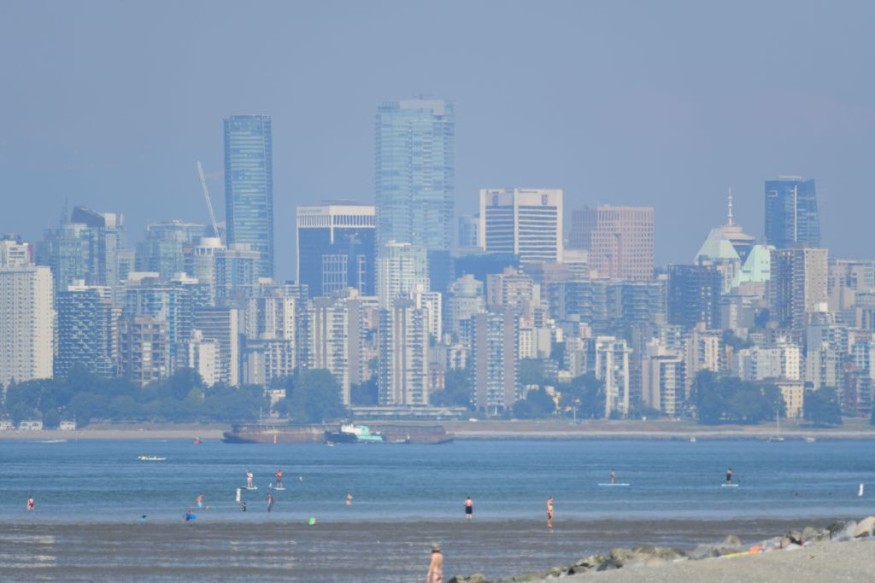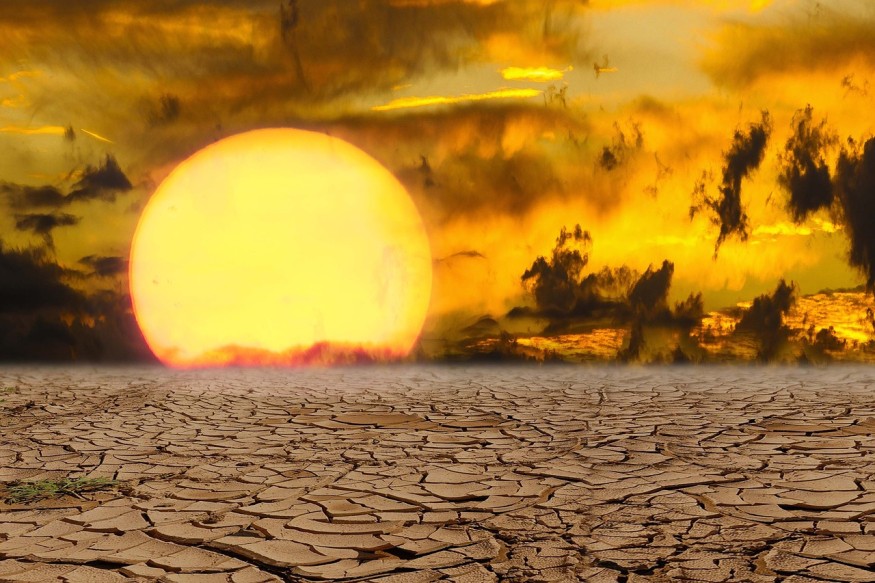
In the core of the worst circumstances, a town now faces a new tragedy after nearly a week of record-breaking, lethal heat.
A terrifying drive for residents forced to flee the village of Lytton, British Columbia as flames engulfed the town on Wednesday evening.
— The Weather Network (@weathernetwork) July 1, 2021
📹: 2 Rivers Remix Society #BCfire #BCwildfire #LyttonBC pic.twitter.com/nZ7BZFBu00
For three days in a row, the town of Lytton in southern British Columbia, Canada, was the hottest place in the country. Lytton smashed the all-time Canadian high-temperature record from Sunday, June 27, to Tuesday, June 29, with each day being hotter than the last.
The heat hit its climax on Tuesday when the temperature reached 121 degrees Fahrenheit (49.6 C) If the historic heat wasn't bad enough, nearly a week of scorching and dry weather has laid the setting for a new threat: wildfires.
How the Fire Started
According to eyewitnesses, a fire broke out in Lytton late Wednesday afternoon, local time, and the town was enveloped in flames within minutes. According to The Vancouver Sun, two persons, a couple in their 60s, died due to the incident. The couple took refuge in a hole in the ground, according to their son, when a power pole exploded and fell on them.
Evacuation
While Mayor Jan Polderman signed the official evacuation order at 6 p.m. PDT on Wednesday, people had already begun to evacuate. "It's a disaster. The entire village has caught fire, "Polderman explained to CBC News.
Lytton, British Columbia
Lytton has a population of around 250 people. As the fire spread, other residents north of Lytton were forced to evacuate by Wednesday evening. Despite how rapidly the town was consumed by flames, no casualties had been recorded as of Thursday morning. The extent of the burned wreckage was seen on Thursday. A snapshot acquired by Vancouver's News 1130 revealed the devastation left in the wake of what was once a busy section of the road. According to News 1130, a Canadian minister of parliament, Brad Vis, stated that the fire destroyed 90 percent of the town.
#BREAKING NEWS: 90 per cent of #LyttonBC burned by wildfire, says BC MP https://t.co/Jo0tFVPEis #bcwildfire pic.twitter.com/pFhdTuFjhU
— CityNews Vancouver (@CityNewsVAN) July 1, 2021
"It's a very, very bad scenario. Firefighters are arriving from all across the province to help put out the increasing flames in the area. The issue is still developing, according to Vis, who spoke to News 1130. As of early Thursday, the fire had spread to more than 19,700 acres (about 8,000 hectares).
Related Article : Dangerous 'Omega Block' Heat Dome is Looming Over US and Canada, Causing Severe Heat
Damages
According to Vis, the fire has affected somewhere from 1,200 to 1,500 residents in and near Lytton.
On Thursday, the fire that consumed Lytton was only one of more than 70 wildfires still blazing throughout British Columbia.
The recent hot, dry weather has made places like Lytton vulnerable to wildfires. The lack of precipitation combined with the availability of dry fuels such as grass made it very simple for wildfires to start and spread fast.
Heat Wave in Canada

This current heat wave was and continues to be one of the hottest that southwestern Canada and the northwest United States have ever seen. Several hundred deaths have already been recorded in British Columbia as a result of the heat wave.
According to the Associated Press, British Columbia's top coroner Lisa Lapointe said 486 complaints of "sudden and unexpected" fatalities were received between last Friday and Wednesday, far above the 165 deaths the province typically sees in five days.
As of June 28, British Columbia had broken 43 all-time temperature records, according to the World Meteorological Organization (WMO).
As of June 28, British Columbia had broken 43 all-time temperature records, according to the World Meteorological Organization (WMO).
"With high temperatures expected to reach the 90s F (32-34 C) until early next week, firefighters will have difficult circumstances," AccuWeather Meteorologist Randy Adkins said.
Weather forecasts believe there are at least two encouraging weather trends for containment operations until the end of the week.
"Fortunately, winds aren't predicted to be very severe, and relative humidity has increased somewhat," Adkins said.
Battling the Fire
Firefighting workers in southern British Columbia should have the edge over continuing blazes due to the lack of strong winds. Weaker winds will slow the spread of flames and prevent embers from flying further and igniting new fires.
"Rain chances may rise a little moving into the weekend," Adkins said, "but any thunderstorms that do develop will likely be isolated in character, so it's far from a certainty that needed rain will come." "In fact, if lightning strikes with only a few drops of rain, it might reignite fires that haven't yet burnt."
For more climate and weather updates, don't forget to follow Nature World News!
© 2026 NatureWorldNews.com All rights reserved. Do not reproduce without permission.





